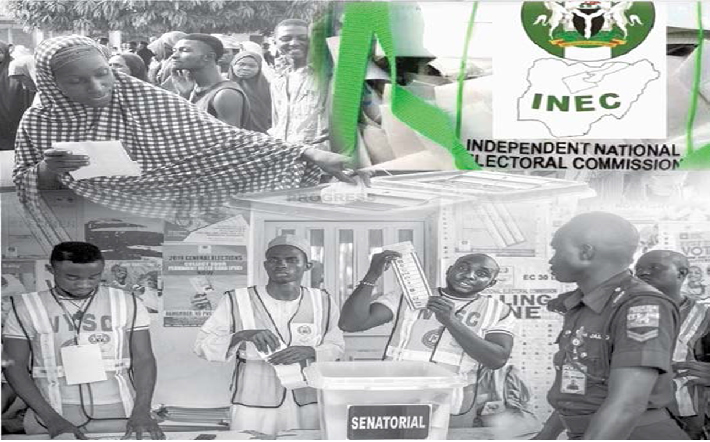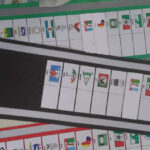
Nigeria is currently in this situation and rather than gain the electorate’s support with convincing value propositions, the main opposition Peoples Democratic Party is capitalising on this ambiguity by urging Nigerians to vote the party as a “safe” option. The allusion in their aired radio jingle is, rather than “waste” votes on improbable candidates and outcomes, Nigerians should settle for a less risky and more likely to win option: the PDP.
Expectedly, the major preoccupation of political parties during elections is the pursuit of numbers. Politics, in the end, is a game of numbers. It is therefore understandable why a party, in its self-pursuit can flimsily dismiss a vote outside its numbers, as wasted.
Sadly, this sentiment of a wasted vote on improbable candidates is a widely held narrative amongst Nigerians, and undoubtedly the consumer insight behind the PDP campaign.
This however has damaging implications for a developing country with widespread voter apathy and electoral scepticism. It is misleading and retrogressive to run a campaign that suggests that a vote cast for a preferred candidate, however inauspicious, is a wasted vote.
Firstly, it perpetuates the erroneous belief of the inability of one person to effect positive change. Given the myriad developmental challenges Nigeria faces, it can be discouraging to think of how little an impact an individual contribution can make. Such noble attempts are ridiculed and written off as ineffectual.
It is important however, to realise that breakthrough feats around community development, socioeconomic growth and national advancement, have started with one person thinking their idea was different yet significant enough to achieve desired change. This is exactly how each Nigerian should feel, and a campaign that promotes otherwise should not be encouraged.
Secondly, it discourages the personal sense of responsibility and accountability required from citizens towards nation building. Recommending the offhand gesture of ceding your vote to a political party just because of the uncertain outcomes of voting for another party, absolves citizens of the consequences of their voting decisions. The electorate should instead feel invested in their votes and nation, enough to exercise the requisite duty and care towards choosing their leaders, committing to development goals, or any civic obligation for that matter.
Thirdly, it discounts a vote to mere numbers and presents the elections as a box to be ticked, literally. But a vote is more than that. It is a weapon, a vision, a vehicle, a most potent enabler for individual and national wellbeing. Propagating the idea of the classic hapless and helpless Nigerian who always has to settle for a bird in hand, erodes the perception of power a vote or voter represents. What we need are campaigns that reframe this unfortunate narrative and make the electorate feel empowered to undertake the risks of their desired Nigeria.
In addition, growth and development take place where diversity of ideas and solutions flourishes. Political campaigns and systems that dismiss otherness, inhibit innovative thinking and opportunities to discover new effective leaders, fresh methods and results.
There is a case for the consolidation of a majority votes towards attaining a significant result. In an election, that responsibility principally lies with the political parties that should focus on aligning and aggregating expectations and interests, then pitching a value proposition that encapsulates this. The voter on the other hand should be equipped, encouraged and fundamentally focused on diligently assessing these propositions in order to make a decision through a vote.
Unfortunately, the “wasted votes” persuading logic does little to assert a candidate’s credibility, capability and viability but reflects as a desperate defeatist disposition akin to the psychological cunning of the Garden of Eden.
The gospel that Nigerians having more than an either-or option for the 2023 elections put their votes at a risk of becoming worthless is derision to the mental acuity of the Nigerian electorate. Indeed, to say that by voting for a party, any party at all, votes have been wasted, is a simplistic sentimental sell and falls absolutely short of the calibre of conversations that would characterise the policies and performance Nigerians expect in the next dispensation.
Rather than prey on traumatised Nigerians, a responsible approach would be to enlighten the electorate on the importance of their votes, the need to stop the herd mentality and to cultivate critical reasoning, independent thinking and objectivity. Political parties should do the hard work of convincing the electorate along the lines of values, ideologies, and expectations.
Finally, Nigerians should rest assured that there is no such thing as a wasted vote. Every vote counts. An alignment with a majority does not determine its validity or significance. The weight of your vote is on your conscience and convictions. Regardless of who you choose to vote, whether in the end it turns out to be right or wrong, a win or loss, regretful or fulfilling, your vote contributes to that outcome. It counts, so cannot be wasted if you use it. And you should use it – wisely.
Imosemi, a youth activist, writes from Lagos, Nigeria.
Twitter @omoleimosemi





